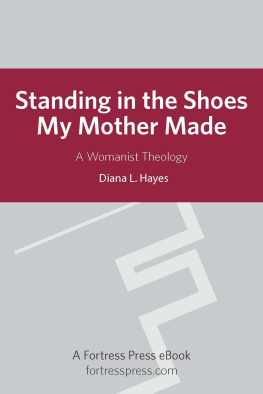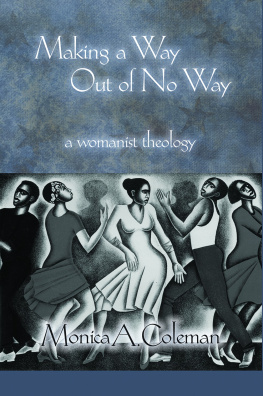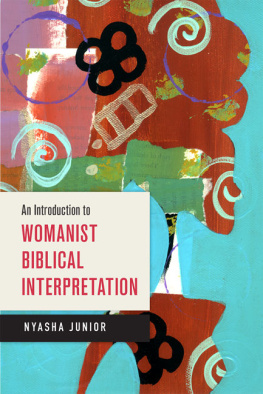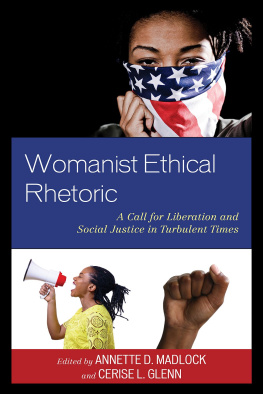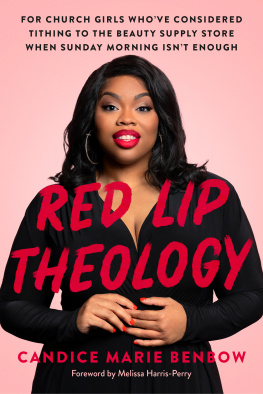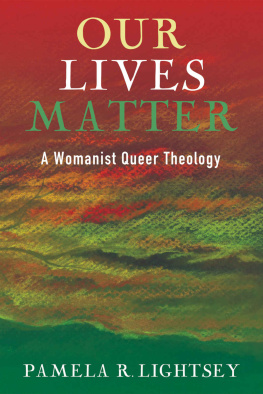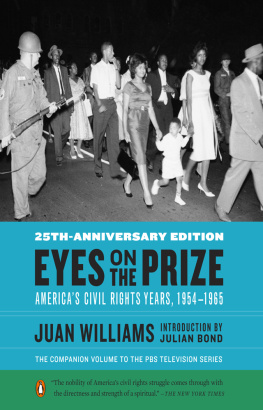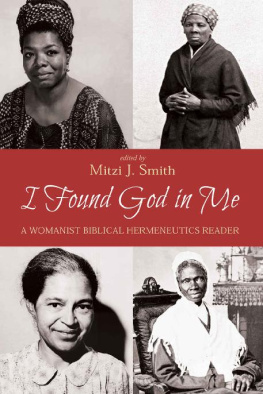FREEDOM FAITH
FREEDOM
FAITH
The Womanist Vision of
PRATHIA
HALL
by COURTNEY PACE
The University of Georgia Press | Athens
A Sarah Mills Hodge Fund Publication
This publication is made possible in part through a grant
from the Hodge Foundation in memory of its founder,
Sarah Mills Hodge, who devoted her life to the relief and
education of African Americans in Savannah, Georgia.
2019 by the University of Georgia Press
Athens, Georgia 30602
www.ugapress.org
All rights reserved
Designed by Melissa Bugbee Buchanan
Set in Sentinel
Most University of Georgia Press titles are
available from popular e-book vendors.
Printed digitally
Library of Congress Cataloging-in-Publication Data
Names: Pace, Courtney, 1984 author.
Title: Freedom faith : the womanist vision of Prathia Hall / by Courtney Pace.
Description: Athens : The University of Georgia Press, [2019] | Includes bibliographical references and index.
Identifiers: LCCN 2018053137| ISBN 9780820355061 (hardcover : alk. paper) | ISBN 9780820355054 (ebook)
Subjects: LCSH: Hall, Prathia LauraAnn. | Hall, Prathia LauraAnnReligion. |Hall, Prathia LauraAnnPolitical and social views. | African American civil rights workersBiography. | African American women civil rights workers Biography. | African American BaptistsBiography. | BaptistsUnited States ClergyBiography. | African American feministsBiography. | African AmericansCivil rightsHistory20th century. | Civil rights movements United StatesHistory20th century.
Classification: LCC E185.97.H246 P33 2019 | DDC 323.092 [B] dc23
LC record available at https://lccn.loc.gov/2018053137
For Stanley. May you live by Freedom Faith.
CONTENTS
PREFACE
In my first year of graduate school, I sought a dissertation topic addressing the intersections of race and gender, largely because of my own educational and ministry experiences. Homiletician Tom Long suggested Prathia Hall as a potential research focus based on her civil rights activism and alleged origination of I have a dream. I was instantly drawn to her, beyond what I could fully understand at the time. I left no rock unturned in my quest to find primary sources from which to tell her story. This work has in many ways been like putting together puzzle pieces without the picture on the box as a guide. New sources offered snippets of information, and as a historian, I had to figure out how the pieces fit together.
An added challenge to this work is the fact that I am white. Womanism is a liberation methodology rooted in the experiences of black women, affirming the equal humanity of all people, with concern to oppose every form of oppression, including racism, sexism, and classism, and offering black womens correction to white feminism that isolated gender, often ignoring race and class. While some of Halls friends were delighted that a scholar was focusing on Hall, some hoped Halls first biographer would be a womanist scholar. Historians have always been both insiders and outsiders to their work, typically choosing topics that are somewhat autobiographical but that extend beyond our understanding. While I can relate to some of the adversity Hall facedI am an ordained, Baptist woman in ministry who juggled childrearing, divorce, and a mix of part-time and full-time jobs while earning a PhDmy understanding is limited by my context as a white scholar. My earnest hope is that this book and the ground it covers make future study of Hall more accessible. My book title is not an attempt to produce womanist scholarship, but to accurately reflect the way Hall described her work. I offer my research as a resource, but I respect and celebrate that critical engagement with Halls life and work must be led by womanist scholars.
To honor Hall and do justice to her story, I present Hall telling her story in her own words wherever possible, including referring to her by the surname
No historical figure is ever beyond critique. As a researcher and author, I wrestled with whether to include certain pieces of Halls story, particularly the details of her divorce, the long process of completing her PhD, and her difficult job search. I ultimately opted to include those details, though sensitive, to do justice to her story, her character, and her desire that the truth be known. The causes for such events are complex, and one can as easily fall into the unfortunate trope of blaming the victim as one can into the trope of justifying every action, both of which I tried not to do. Some interviewees mentioned that Hall could be a difficult colleague, but that, too, can often become an oppressive trope perpetuated by the predominantly white, male academy that targets black women in order to limit black womens influence and significance within the church and in academia.
This project would not have been possible without the guidance and support of so many. Thank you to my editor, Walter Biggins, and to Deborah Oliver and Jon Davies, who worked closely with me throughout the final editing process, and the other University of Georgia Press staff, for believing in this project. Thank you for your support, your thoughtful feedback, and your commitment to publishing this book.
Baylor University also offered tremendous support for my research. Generous fellowships from the Baylor University Institute for Oral History, the Glen Hillburn Dissertation Travel Award, and the National Association of Baptist Professors of Religion Dissertation Fellowship aided my work. I am grateful to the Baylor University Graduate School for supporting meand now othersby establishing a parental leave policy for graduate students and for funding research and conference travel. The Baylor Department of Religion has likewise offered a community of support and resources. Thanks to my dissertation committee and other Baylor faculty who have guided my work along the way: Bill Pitts, Stephen Sloan, Rosalie Beck, Bruce Longenecker, Beverly Gaventa, James Sorrelle, David Whitford, Bill Bellinger, Jim Nogalski, and especially to my advisor, mentor, friend, and doktorvater, Doug Weaver. Thank you also to my faculty colleagues at Memphis Theological Seminary for supporting this project, for being understanding of the time needed to complete the writing, and for encouraging me in the final steps of the process.
I am grateful for the helpful archivists at Temple Universitys Urban Archive Collection who assisted me in my research of Fellowship House. Princeton Theological Seminarys libraries also provided valuable records about Halls theological education. I am grateful to the Student Nonviolent Coordinating Committee for opening its fiftieth anniversary celebration to students, allowing me to form relationships with so many who knew Prathia Hall: Martha Norman Noonan, Joan Browning, Judy Richardson, Bob Zellner, Mary King, Penny Patch, Peggy Dammond Preacely, Faith Holsaert, Sheila Michaels, U.S. Representative John Lewis, John Perdew, Peter DeLissovoy, Charles Sherrod, Bernice Johnson Reagon, Rutha Harris, Larry Rubin, Jack Chatfield, Chuck McDew, Connie Curry, Courtland Cox, Don Harris, Charles Nesbitt, James Lawson, Joyce Ladner, Dorie Ladner, Julian Bond, Frank Smith, Betty Garman Robinson, Ivanhoe Donaldson, Danny Lyon, Bernard Lafayette, Harry Belafonte, Joanne Christian Mants, Bob Mants, Benjamin Chavis, and Wyatt Tee Walker. I was fortunate to locate several of Prathia Halls colleagues and friends, who welcomed me and offered invaluable resources: Jeremiah Wright, Charles Adams, Evelyn Brooks Higginbotham, Leah Gaskin Fitchue, Cheryl Townsend Gilkes, Edith Kimbrough, Jeriann Harris, Frank Thomas, Martha Simmons, Cleophus LaRue, Daryl and Vanessa Ward, and Presttonia Davis Brown. I must give a special word of gratitude to Rev. LaGretta Bjorn, and her son Akil, for granting me access to Dr. Halls papers, for blessing my research, and for pastoral encouragement throughout the project.
Next page

